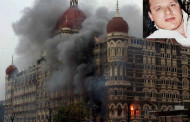SIS deployed 60 jihadists in Europe as part of a plot to carry out attacks on five cities including London, Paris and Berlin before the carnage it unleashed in the French capital, according to a media report.
Intelligence obtained by Western security agencies before the November 13 Paris attacks indicated that Abu Mohammed al-Adnani, the head of ISIS’ external operations efforts, was the key figure behind the ambitious plot, CNN reported citing a senior European counter-terrorism source.
As many as 60 ISIS fighters had been deployed by the group to Europe to carry out attacks on five cities and had already reached European soil, the source said.
The intelligence indicated that the target cities included Paris, London, Berlin and a major population centre in Belgium. However, there was no indication the plan was to attack the cities simultaneously.
The source cautioned that the threat stream was based on intelligence which was fragmentary and difficult to verify, and it was too vague to act on.
In addition, there was no specific intelligence prior to the Paris attack on any moving parts of the plot, the report said.
“In terms of ambition, it also just pointed towards something we already knew. ISIS had hardly made it a secret it sought to target Europe,” the source was quoted as saying.
In the year before the Paris attacks, Adnani had threatened the European countries supporting the anti-ISIS coalition in a series of audio messages, making specific references to France and Belgium.
And in January 2015, Belgian police broke up a major ISIS plot in Belgium coordinated by Abdelhamid Abaaoud, who later became the ringleader of the Paris attacks in which jihadists slaughtered 130 people in a series of bombings and shootings.
The source said Western intelligence agencies believe Adnani is at the heart of ISIS’ international attack planning.
“As far as we’re concerned, he is top of our target list,” the source said. The source said the lack of specific intelligence on any moving parts of the Paris plot has caused consternation, because it is rare for any plot to fly completely under the radar.
Western security agencies had picked up at least some specific chatter on planning, which they later realised related to the attack, the source said.
After the Paris attacks, new attention was focused on the fragmentary intelligence indicating 60 ISIS operatives had been deployed to Europe.
“The worry has been that if, say, 20 were involved in the Paris attacks, there might be 40 or so still out there,” the source said.
PTI.
The Himachal Pradesh government would take up with the External Affairs Ministry the case for the return of two youths from the state admitted in a hospital in Saudi Arabia.
“Although the families of the youth identified as Jitendra from Arki in Solan district and Gagan from Chowari in Chamba district have not so far directly approached the government, we would take up their case with the External Affairs Ministry,” Chief MinisterVirbhadra Singh said.
Social Justice and Empowerment Minister Dhani Ram Shandil and MLA Ravi Thakur have taken up the issue and would meet External Affairs Minister Sushma Swaraj and urge her to use diplomatic channels for ensuring their return to India.
The youth were working with a company in Saudi Arabia and met with an accident few days ago and admitted to hospital.
The parents of the youth alleged that after some time, the company stopped paying for the treatment and the hospital was also not providing them medicine and they were just lying in the hospital.
They also alleged that the company had kept their visas and was neither paying for treatment nor allowing them to go back to India.
Over two crore cases are pending in the country’s lower courts, out of which over 41 per cent are less than two-year-old while over 10 per cent are pending for over a decade, a Law Ministry data says.
As per available data on the National Judicial Data Grid website as on December 31, 2015, there are a total of 2,00,60,998 cases pending across the district courts in the different states.
Out of these, 83,00,462 or 41.38 per cent cases are pending for less than two years. At the same time, 21,72,411 or 10.83 per cent cases are pending for over 10 years, a note prepared by the Department of Justice for a high-level meeting on Justice Delivery and Legal Reforms says.
While referring to the data available on NJDG website, the note clarifies that it does not cover all courts across the country, therefore, the Department of Justice periodically collects the data on pendency of cases from the 24 high courts and the Supreme Court.
The data states that 36,30,282 or 18.1 per cent of the cases are pending for the last five to ten years.
The number of cases pending between 2 and 5 years stands at 59,83,862 or 29.83 per cent of the total cases.
Regarding the pending cases, the Department of Justice says that one of the biggest problems facing policy makers in this field is the “lack of any benchmark” to determine when a case should be considered delayed.
“For example, if a case is not disposed of within a year of it being instituted, will it be considered to be delayed? The lack of a clear criterion to determine what constitutes delay poses a hurdle to determine the policy changes needed to address the issue,” the note reads.
Usual attempts to reduce pendency include increasing the number of judges or creating additional benches, and while there is no disagreement that the number of judges does need to be increased, this cannot be the only measure to reduce the pendency, it says.
“A linear formula applied across the different states without taking into consideration the actual reasons behind the delay as well the socio-economic factors of the different states is not going to be too effective in reducing pendency,” the government feels.
The e-Committee of Supreme Court had launched the National Judicial Data Grid to provide data on cases pending in the district courts across the country.
The data is segregated into civil and criminal cases and further broken down on the basis of the number of years the cases have been pending.
PTI.
Three terror suspects, who were recently deported from UAE for their alleged ISIS links and for conspiring to carry out terror strikes in India and other countries, were on Tuesday remanded to 10 days’ NIA custody by a Delhi court. Sheikh Azhar Al Islam, Mohammad Farhan Shaikh and Adnan Hussain were produced in muffled faces before District Judge Amar Nath during in-camera proceedings after expiry of their NIA custody.
According to sources, the NIA sought extension of police remand of the three accused for 12 days, saying they were required to be interrogated to unearth the larger conspiracy of ISIS in India and abroad. “During questioning, accused had disclosed that they were active supporters of Islamic State and remained in close contact with several active members of IS using internet, telephone and other means of communication in furtherance of its activities,” the NIA said in its remand application.
The agency further contended that sustained custodial interrogation of these three accused was required “to unravel the larger criminal conspiracy of IS activities in India and abroad including recruitment of resident and non-resident Indians by the IS.”
“Custodial interrogation of the accused during this period has resulted in the revelation of many facts which are pertinent to establish the inter-connection amongst these accused and their association with IS. The sustained questioning of the accused also led to the discovery of many facts which need to be further verified and investigated to establish their involvement in furtherance of their activities of the IS by the accused,” the agency said.
Advocate M S Khan, who appeared for Farhan and Adnan, opposed the NIA’s plea saying his clients have already been interrogated at length and there was no need to extend their custody.
Adnan, who hails from Karnataka, Farhan who is from Maharashtra and Sheikh Azhar from Jammu and Kashmir were arrested on January 29 by the NIA after being deported from the UAE. The trio were detained by the NIA on arrival from the UAE at the IGI airport here.
The three suspects, along with other unknown associates, were allegedly involved in a conspiracy to identify, motivate, radicalise, recruit and train Indian citizens, located in India and abroad, for planning and executing terror attacks, according to the NIA.
On September 15 last year, the UAE had deported four Indians suspected to have links with ISIS (Islamic State of Iraq and Syria). The UAE had also sent back last year a 37-year-old woman Afsha Jabeen for allegedly recruiting youths for ISIS. In January 2015, Salman Mohiuddin of Hyderabad was arrested when he was preparing to board a flight to Dubai on way to Syria via Turkey.
According to Indian intelligence agencies, around six Indians who had joined the ISIS were reportedly killed in different incidents in Iraq and Syria.
PTI.
Non-Resident Indians, who return to the country “every now and then”, can purchase a house in India, the apex consumer commission has said while asking Supertech Ltd to pay around Rs 64 lakh to an NRI for denying possession of a flat in Greater Noida in Uttar Pradesh.
National Consumer Disputes Redressal Commission (NCDRC), presided by Justice J M Malik, directed the firm to pay Rs 63,99,727 to south Delhi resident Reshma Bhagat and her son, Tarun Bhagat, who had booked a flat in the .builder’s project in 2008.
The firm was scheduled to hand over its possession to the complainant in 2009 and when it did not construct the house, the Bhagats approached the consumer commission for refund and damages, the complaint said.
The firm had opposed the complaint seeking refund and other damages, claiming that the flat was booked in the name of Tarun, an NRI, and it was not for residing purpose but solely to earn profit and he could not claim to be a ‘consumer’ himself.
The commission rejected the firm’s contention, saying “it cannot be made a ‘rule of thumb’ that every NRI cannot own a property in India. NRIs do come to India, every now and then. Most of the NRIs have to return to their native land. Each NRI wants a house in India. He (Tarun) is an independent person and can purchase any house in India, in his own name.”
The NCDRC also rejected the firm’s claim that the complainants were offered an alternative flat but they rejected it and hence the complaint should be dismissed.
“It is well settled that nobody can force anybody to accept the flat of the choice of the Opposite Party (firm). Any other flat cannot be imposed upon the consumers. They have got their free will to accept or reject the other flats offered to the complainants. It is difficult to fathom why the flat which was promised to be give to complainants, originally, was not given,” it said.
According to the complaint, the complainants had made payment of Rs 63,99,727 to Supertech Ltd in 2008 for a luxurious flat which was to be built in Greater Noida and the flat’s possession was to be given by December, 2009.
The firm, however, did not construct the flat and the complainants approached the commission seeking Rs 1.40 crore from the firm, including interest and damages.
The deposition of David Coleman Headley began before a special Mumbai court on Monday where he is revealing the sequence of events and planning behind the 26/11 terror attacks. He is what we know so far:
1. I was a true follower of Lashkar-e-Taiba
2. Sajid Mir of Lashkar-e-Taiba was my main contact
3. After I changed my name, I disclosed this information to my colleague Sajid Mir of LeT
4. Sajid Mir wanted me to setup some business or office in India
5. After I changed my name, within few weeks I visited Pakistan
6. I changed my name so that I could enter India. I wanted to enter India with an American name
7. Sajid Mir (LeT) specified object of his intention before my first visit to India
8. Sajid Mir (LeT) asked me to take general video of Mumbai city
9. I visited India eight times after receiving the new passport. Out of eight times, I visited Mumbai seven times
10. My seven visits to India were directly from Pakistan and one from the UAE
11. After 26/11 Mumbai terror attacks, I visited India on March 7, 2009, from Lahore to Delhi
12. All details except the place of birth, date of birth, mother’s nationality and passport number were incorrect in my visa application.
13. The first attempt was in September 2008, which failed because the boat hit some rocks in the ocean. The people on boat were saved as they were wearing life jackets. Weapons and explosives were lost.
14. The second attempt was made after a month in October 2008. Those involved in first attempt were involved in this as well, but the attack failed.
15. It was in the third attempt that the attack was successful i.e. on November 26, 2008.
16. Retired Major Abdur Rehman Pasha and I were arrested in Landikotal area near Pakistan-Afghan border because I looked like a foreigner. During my arrest, Major Ali came to interrogate me.
17. During my interrogation, I showed my Pakistan ID card and they released me
18. During the interrogation, I gave the information to Major Ali that I am holding a business office in India. Major Ali thought that I will be beneficial for gathering intelligence from India.
19. He introduced me to Major Iqbal of Pakistan’s ISI.
20. Sajid Mir (LeT Operative) was using the email ID [email protected] to communicate
21. Sajid Mir and Major Iqbal were happy to see my Indian visa. Sajid Mir was guiding me on getting visas.
22. Dr. Tahawwur Hussain Rana helped me get the Indian visa. I met him in a military school in Pakistan’s Punjab province. Dr. Rana was my schoolmate for five years. After school, Rana became a doctor in Pakistan Army in Rawalpindi.
23. Headley names 26/11 mastermind Hafiz Saeed in court, says, “I was inspired by Hafiz Saeed’s speeches.”
This is a developing story and will be updated as information pours in. (ANI)
Ravishanker Singh Pappu, former MLC and grandson of ex-Prime Minister Chandrashekhar, and former zonal coordinator Shesh Nath Ram have been expelled from the party, BSP zonal coordinator Madan Ram said today.
The leaders have been expelled for indulging in anti-party activities, he said.
Pappu had unsuccessfully contested the Lok Sabha election from Salempur constituency.
PTI.
An eight-year-old boy was killed in a celebratory firing bySamajwadi Party (SP) workers at Kairana town in Shamli district, triggering protests by locals.
The victim, Sami, who was passing by Kairana area in a rickshaw, was hit during the firing by SP workers on Sunday, Superintendent of Police Anil Kumar Jha said.
The workers were celebrating the victory of party candidate Nafisa in the local body polls from the town, he said, adding the boy later succumbed to his injuries.
A case has been registered against five persons, including the husband of the victorious candidate under relevant sections of the Indian Penal Code, the police said, adding efforts are being made to arrest the absconding accused.
Irate locals blocked the Khatima-Panipat Highway to protest the death of the boy.
Kozhikode: Bangladeshi writer Taslima Nasreen does not feel that India is an “intolerant” country and wondered why secularists in the country were questioning only Hindu fundamentalists.
She also said that a democracy based on pseudo-secularism was not a true democracy at all. “I don’t think India is an intolerant country. Most of the people are quite tolerant for each other’s faith, I think”, she said at the Kerala Literature Festival in Kozhikode last evening, joining the debate over ‘intolerance’.
The author, living in exile in India after incurring the wrath of fundamentalists back home over a novel written by her in 1994, said, “The laws in the country (India) do not support intolerance. But there are so many intolerant people in the country.”
Responding to a question, she said, “Why secularists in India were questioning only Hindu fundamentalists while leaving alone Muslim fundamentalists.”
“True conflict in India was between secularism and fundamentalism, between innovation and tradition and between people who value freedom and who do not”, she said.
“All religions were anti-women though distortions caused by fundamentalists added to it”, Nasreen said explaining her struggle against fundamentalism. Holding that religion should be kept separated from government, she said influence of religion in lawmaking has caused “oppression” of both Hindu and Muslim women in Bangladesh.
More than 150 writers of national and international repute are taking part in the four-day festival, which concludes on Sunday.
PORT BLAIR: Union Minister for Consumer Affairs Ramvilas Paswan today charged that Bihar was now passing through a ‘jungle raj’ and Chief Minister Nitish Kumar should resign.
“The voters in Bihar have by now realised their mistakes by choosing the present government in power,” Paswan, on a two-day visit to the islands told PTI here.
He alleged that the “deteriorating law and order situation in Bihar” indicated that the state was passing through “jungle raj” and the Chief Min .. PTI
















Recent Comments